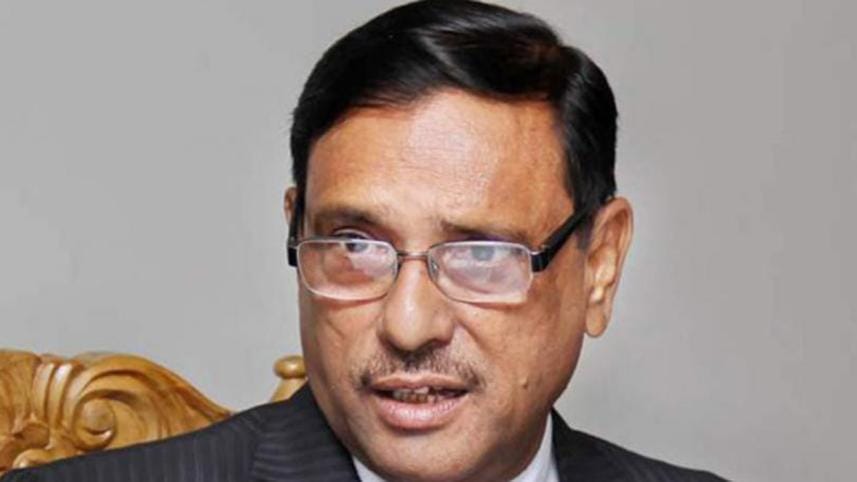PM selects right persons for cabinet: Quader

Awami League General Secretary Obaidul Quader today said Prime Minister Sheikh Hasina has selected the right persons as members of the cabinet.
“There is no discontent between Awami League and its alliances over formation of the new cabinet…Our leader Prime Minister Sheikh Hasina has selected the right persons for the cabinet,” he told reporters after placing wreaths at the portrait of Father of the Nation Bangabandhu Sheikh Mujibur Rahman at Dhanmondhi-32 in Dhaka.
Quader, also the road transport and bridges minister, said there is no discontent between AL and its alliances. “The cabinet could be reshuffled at any time. We didn’t give any condition to them. The 14-party is our alliance in our bad time,” he added.
He said Prime Minister Sheikh Hasina bestowed responsibilities upon the right persons. “We will make decision and do work in the greater interest of the people,” the minister added.



 For all latest news, follow The Daily Star's Google News channel.
For all latest news, follow The Daily Star's Google News channel.
Comments